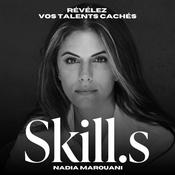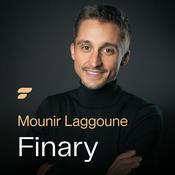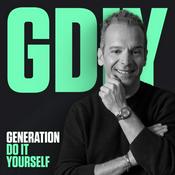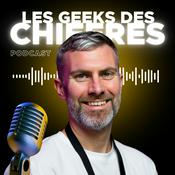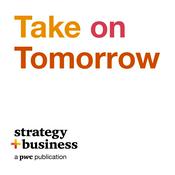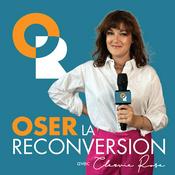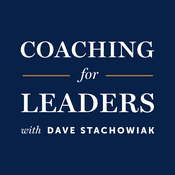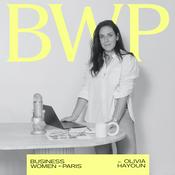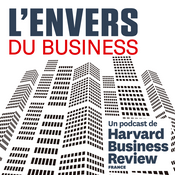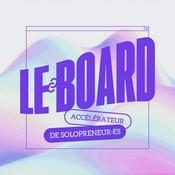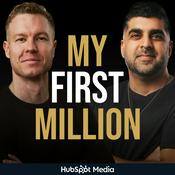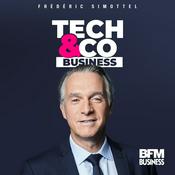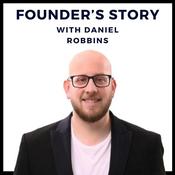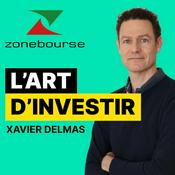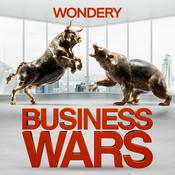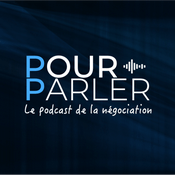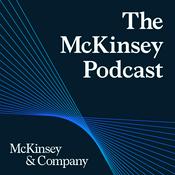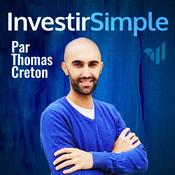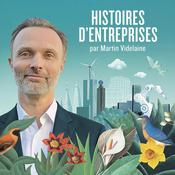127 épisodes

Impact AI Update: Summer Break & Webinar Resources
16/6/2025 | 2 min
I will be taking a brief hiatus for the next three months. I’m going to be using this time to step back, reflect, and rework the format of the show to bring you even more valuable insights and engaging conversations. I’m looking forward to returning in the fall with fresh episodes, new guests, and even deeper dives into the challenges and opportunities shaping mission-driven machine learning-powered companies.In the meantime, I'm thrilled to share another way you can continue to learn and engage with the world of AI through Pixel Scientia Labs. While the podcast is on pause, I invite you to explore our Webinar Initiative at pixelscientia.com/webinars.Links:Webinars from Pixel Scientia

Advancing Breast Cancer Screening with Nico Karssemeijer from ScreenPoint Medical
02/6/2025 | 21 min
What role can artificial intelligence play in detecting breast cancer earlier, when it's most treatable? In this episode of Impact AI, we hear from Nico Karssemeijer, Chief Science Officer of ScreenPoint Medical, about how his team is using AI to transform breast cancer screening. Drawing on more than four decades of experience in medical imaging, Nico shares how ScreenPoint’s AI tools assist radiologists by analyzing mammograms, highlighting suspicious areas, and even learning from years of patient data. The conversation explores what it takes to build trustworthy medical AI, overcome challenges with data diversity and device bias, and the importance of clinical validation. To find out how AI is being integrated into real-world healthcare to improve outcomes (and what goes into building a successful AI-powered medical company), tune in today!Key Points:What led Nico to turn decades of research into a breast imaging AI startup.How ScreenPoint uses AI to support radiologists in early detection.Challenges of working with diverse data from different imaging devices.The importance of training models with clean, representative data.Strategies for reducing bias across vendors and populations.How independent, real-world validation drives trust and clinical adoption.Finding a balance between model accuracy and explainability.Why domain expertise is crucial for building a successful AI-powered startup.Driving adoption in medical AI through clinical partnerships and rigorous trials.Quotes:“It’s amazing how much more information you can get out of the mammograms [using AI]. That surprises me all the time.” — Nico Karssemeijer“You can't just say, ‘This mammogram is abnormal,’ because then [the radiologists] are puzzled. – The algorithm is getting so good that it identifies areas the radiologists would probably not see by themselves. – You have to – mark the area in the exam where a lesion is found.” — Nico Karssemeijer“It's incredibly important to have enough domain expertise when you start a company, because it's easy to fail because you don't understand well enough what the customer wants [or] where the field is going.” — Nico KarssemeijerLinks:Nico KarssemeijerScreenPoint MedicalNico Karssemeijer on LinkedInNico Karssemeijer on Google ScholarResources for Computer Vision Teams:LinkedIn – Connect with Heather.Computer Vision Insights Newsletter – A biweekly newsletter to help bring the latest machine learning and computer vision research to applications in people and planetary health.Computer Vision Strategy Session – Not sure how to advance your computer vision project? Get unstuck with a clear set of next steps. Schedule a 1 hour strategy session now to advance your project.

Radiology Tools for Precision Medicine with Ángel Alberich-Bayarri from Quibim
19/5/2025 | 32 min
How can we harness medical imaging and artificial intelligence to shift healthcare from reactive to predictive? In this episode, I sit down with Ángel Alberich-Bayarri to discuss how artificial intelligence is revolutionizing radiology and precision medicine. Ángel is the CEO of Quibim, a company recognized globally for its AI-powered tools that turn radiological scans into predictive biomarkers, enabling more precise diagnoses and personalized treatments.In our conversation, we hear how his early work in radiology and engineering led to the founding of Quibim and how the company’s AI-based technology transforms medical images into predictive biomarkers. We unpack the challenges of data heterogeneity, how Quibim tackles image harmonization using self-supervised learning, and why accounting for regulations is critical when building healthcare AI products. Ángel also shares his perspective on the value of model explainability, the concept of digital twins, and the future of preventative imaging. Join us to discover how AI is disrupting clinical decision-making and preventive healthcare with Ángel Alberich-Bayarri.Key Points:Hear about Ángel’s background and how his career led to founding Quibim.Find out how Quibim turns radiology images into predictive clinical insights.Different use cases of Quibim’s technology and why biopsy data is important.He explains why Quibim avoids relying solely on radiologist annotations.Challenges of using medical imaging: data fragmentation and scanner variability.Explore Quibim’s self-supervised image learning harmonization techniques.How Quibim increases the explainability of the model while maintaining accuracy.Why understanding clinical workflows and radiologist adoption behavior is critical.Uncover how regulations influence the development of Quibim’s technology.Ángel’s advice for entrepreneurs and leaders of AI-powered startups.Quibim’s plans for predictive modeling, digital twins, and AI for preventative medicine.Quotes:“We would like AI to be able to mine all this hidden information we have right now in the images. Our vision is long-term, being able to understand what is happening until this point within the human body.” — Ángel Alberich-Bayarri“What [Quibim is] investing in is the next frontier that not only detects and diagnoses disease, but also predicts or prognoses what is going to happen.” — Ángel Alberich-Bayarri“Human behavior has a lot of nuances that need to be appreciated when AI is adopted.” — Ángel Alberich-Bayarri“The bolder the claims you make, it’s the higher level of evidence you need to achieve.” — Ángel Alberich-Bayarri“Taking care of health before we have symptoms, it’s just going to be a growing business, and therefore, a lot of AI tools will be needed to understand our inner us.” — Ángel Alberich-BayarriLinks:Ángel Alberich-Bayarri on LinkedInÁngel Alberich-Bayarri on XQuibimResources for Computer Vision Teams:LinkedIn – Connect with Heather.Computer Vision Insights Newsletter – A biweekly newsletter to help bring the latest machine learning and computer vision research to applications in people and planetary health.Computer Vision Strategy Session – Not sure how to advance your computer vision project? Get unstuck with a clear set of next steps. Schedule a 1 hour strategy session now to advance your project.

Simulating Clinical Trials with Orr Inbarr from Quant Health
05/5/2025 | 21 min
Drug development is notoriously time-consuming and expensive, but what if we could simulate clinical trials before they even begin? Orr Inbar, Co-Founder and CEO of QuantHealth, joins me to explore how his team is doing just that. By simulating trials with AI-native models, QuantHealth helps pharmaceutical companies make better decisions about how to design trials and test drugs.Orr shares how QuantHealth uses real-world patient data and detailed drug biology to build deep-learning models capable of forecasting patient responses to new therapies. He breaks down their biggest challenges, like the complexities of messy healthcare data, hidden biases, and the importance of domain knowledge when building AI tools for regulated environments. He also shares a key lesson for any AI startup: focus on solving real problems, not just building clever models. Tune in for a fascinating look at how AI is reshaping drug development and what the future of clinical trials could look like!Key Points:Some background on Orr, his parents, and how he founded QuantHealth.Key problems QuantHealth is solving as a clinical trial simulation company.A breakdown of the biggest challenges facing clinical trials.Why we need to improve data-driven trials of drugs.How QuantHealth builds their foundation models for trial simulations.Examples of the type of predictions their models make in clinical contexts.How they use patient and drug data to make predictions and build “digital drugs”.Key challenges of working with these different types of data.Methods for combating bias, including the use of exogenous data. How they incorporate the medical context in model development.QuantHealth’s validation process: how they meet rigorous industry standards.Orr’s advice to other AI startups on creating value, not just smart models.Where you can expect to see QuantHeath in the next three to five years.Quotes:“There is a constant desire in drug development and pharmaceutical research to get your hands on more data. This makes sense since it's a very data-driven industry. But at the same time, there was a mismatch there, because there's actually quite a lot of data already out there.” — Orr Inbar“How do we bridge the gap between the data that we already have and the insights that we need to generate to answer those questions?” — Orr Inbar“If you take a step back and look at how drugs are being developed today and with an emphasis on clinical trials, we're essentially doing the same things that we were doing 50 years ago.” — Orr Inbar“Even in a world of GenAI, you can't just snap your fingers and get the solution. It requires a lot of work to structure and harmonize the data.” — Orr Inbar“Every trial that we simulate, we first go through a data enrichment process where we look for the latest information in terms of research publications, recently completed trials that are relevant to our drug of interest, and incorporate that data into our data sets.” — Orr InbarLinks:Orr Inbar on LinkedInQuantHealthResources for Computer Vision Teams:LinkedIn – Connect with Heather.Computer Vision Insights Newsletter – A biweekly newsletter to help bring the latest machine learning and computer vision research to applications in people and planetary health.Computer Vision Strategy Session – Not sure how to advance your computer vision project? Get unstuck with a clear set of next steps. Schedule a 1 hour strategy session now to advance your project.

Early Wildfire Detection with Shahab Bahrami from SenseNet
21/4/2025 | 23 min
The recent destruction of the Pacific Palisades in Los Angeles was a brutal reminder of why we need robust early wildfire detection systems. Joining me today is Shahab Bahrami, the co-founder and CTO at SenseNet – a company that provides advanced AI-powered cameras and sensors to protect communities and valuable assets against wildfires.Shahab is passionate about using interdisciplinary research to bridge the gap between machine learning and optimization, and he begins today’s conversation by detailing his professional background and how it led him to co-found SenseNet. Then, we unpack SenseNet and how its technology works, how it gathers data for its AI models, the challenges of relying on images and other sensor data to train machine learning models, and how SenseNet uses multiple sources to detect or define any one problem. To end, we learn why and how SenseNet uses various AI models in a single sensor, how it measures the overall impact of its tech, where the company plans to be in the next five years, and Shahab’s valuable advice for other leaders of AI-powered startups. Key Points:Shahab Bahrami walks us through his professional background and how it led to SenseNet. The ins and outs of SenseNet and how its technology works. How machine learning fits into SenseNet’s offerings, and how it gathers the necessary data. The challenges of working with images and other sensor data to train models. How SenseNet integrates information from different sources to zero in on a single anomaly. Understanding how it uses multiple AI models to adapt to variations post-installation. How the system chooses which AI model to apply and when. Shahab describes how his company measures the overall impact of its technology. His advice to other leaders of AI-powered startups, and his five-year vision for SenseNet. Quotes:“We have one of the most comprehensive wildfire detection solutions in the world, and it is proven by multiple, real-world projects.” — Shahab Bahrami“Having separate AI models is the solution that we are now implementing.” — Shahab Bahrami“For the sensor’s AI – because it is a semi-supervised AI, it automatically adapts itself to local conditions. It learns gradually what is normal and what is abnormal, and it is a continuous learning. It won’t stop.” — Shahab Bahrami“AI changes fast. Every day we have a new AI engine, we have a new model, and leaders, I believe, need to stay updated and make sure their teams have the support and also the resources to keep innovating.” — Shahab BahramiLinks:Shahab Bahrami Shahab Bahrami on LinkedInSenseNetResources for Computer Vision Teams:LinkedIn – Connect with Heather.Computer Vision Insights Newsletter – A biweekly newsletter to help bring the latest machine learning and computer vision research to applications in people and planetary health.Computer Vision Strategy Session – Not sure how to advance your computer vision project? Get unstuck with a clear set of next steps. Schedule a 1 hour strategy session now to advance your project.
Plus de podcasts Business
Podcasts tendance de Business
À propos de Impact AI
Écoutez Impact AI, La Martingale ou d'autres podcasts du monde entier - avec l'app de radio.fr

Obtenez l’app radio.fr gratuite
- Ajout de radios et podcasts en favoris
- Diffusion via Wi-Fi ou Bluetooth
- Carplay & Android Auto compatibles
- Et encore plus de fonctionnalités
Obtenez l’app radio.fr gratuite
- Ajout de radios et podcasts en favoris
- Diffusion via Wi-Fi ou Bluetooth
- Carplay & Android Auto compatibles
- Et encore plus de fonctionnalités


Impact AI
Téléchargez l’app,
Écoutez.

